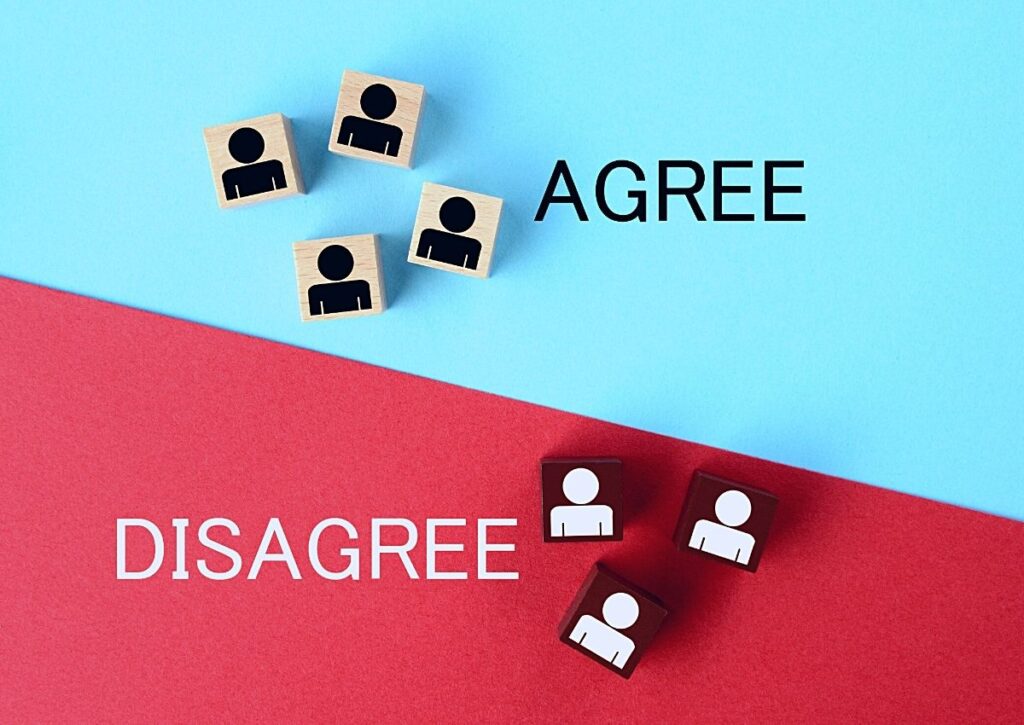Why is it that British people have such a reputation for being indirect & avoiding saying ‘no’? It is like a national joke, with those tables circulated every so often showing what the British person said & what they actually mean.
Clearly everybody is individual, with their own communication style preferences which can be influenced by cultural factors beyond nationality, such as team, company, role & sector. Culture is also about ‘home’: where you were born, your heritage & where you have lived in the world.
However, saying that, there are some general concepts & techniques that are used by British people in disagreeing, which I believe are valuable to know when interacting with British clients, teams or contacts. It can be confusing if you are not used to the style & you may mistakenly hear a positive message, rather than realising the negative points are the parts to pay attention to.
Do you need help with your English communication skills for work?
So why don’t British people just say ‘no’?
In British culture when negative feedback is given, it may feel like criticising the individual & making it personal, not just giving feedback on the idea or proposal. Other cultures may clearly separate the person from their work so negative feedback is about building the idea & getting the best outcome, rather than a reflection on their opinion of you.
There are also key British values which are reflected in avoiding direct disagreement:
- ‘Not rocking the boat’: avoiding a situation where there could be open displays of conflict/ strong negative emotion, or there is a risk of upsetting or offending somebody. This can make British people feel awkward & embarrassed.
- Fair play: the rules are the rules & we should not change them.
- Everybody should be treated equally (in theory at least).
Requests tend to be made in polite, soft language, especially in situations where we do not know the other people very well, or the stakes are high, e.g., a negotiation or pitch. Please & thank yous are expected & definitely get people on your side & willing to help you.
How can we improve your communication skills in English?
We offer communication skills coaching programmes for individuals for your performance and next step in your career.
The insider view to British disagreeing techniques
There are two parts when thinking about the British disagreement style.
First is tone of voice, which can help you understand what the real opinion is. Positive, strong, rising tone suggests this is positive feedback. Hesitant, questioning tone may indicate negative feedback.
Next, there is the language used, and I have put together my selection of top 7 British disagreement techniques for you to explore & learn from:
Positive comment, then negative comment, listen for the ‘but’!
- Interesting (said slowly and thoughtfully)
- Quite good (with the stress on the first word, usually said slowly)
However, note that the phrases above can also be said in a rising, upbeat way and have completely the opposite meaning, i.e., we like it! So, it is important to listen to the tone of voice.
Usually after all these phrases there will be a pause before you hear the real opinion: “But….” or “However……”.
Acknowledge your opinion, then ‘but’:
- I can see/ hear where you are coming from, but perhaps we need to look at another option.
- I know what you mean, but…
Requests framed as questions, or even asking permission to feedback.
They may sound optional, like a gentle suggestion, but actually may require you to take action!
- Can I make a suggestion?
- Have you thought about…?
Inclusive ‘we’:
Using the inclusive pronoun ‘we’ to give feedback, instead of ‘you’, to avoid blame.
- I was wondering whether we could relook at option B.
- Perhaps we should…?
Emphasise the important point with an introductory phrase.
The most important part of the feedback can be flagged to prepare you for the disagreement:
- To be honest I am not sure about this part of the idea.
- Actually, it’s a question of budget.
Sorry/ I’m afraid:
Not really an apology but a linguistic flag to show that a disagreement is coming.
- Sorry but I am not sure I agree with you.
- I’m afraid it’s not that simple.
Delay or avoid feedback:
- Can I come back to you? (avoiding the conversation & then sending a ‘no’ via email)
- Maybe I can think about that.
These are just a handful of the techniques I usually share with my clients. The point is to make sure you are always clear on what is being said. If you are uncertain about the true intended feeling or meaning, then clarify by summarising & reflecting back regularly in the conversation. It can also be a good idea to do this afterwards by email as well.
Finally, it is your choice whether to use this insight to improve your understanding of the key messages & real intentions of your British contacts, or even start to use this type of language yourself to reflect the British style & build more connection.
How can we improve your communication skills in English?
We offer communication skills coaching programmes for individuals for your performance and next step in your career.
If you want to improve your English communication techniques, then you can now choose to have self-study access & learn flexibly in your own time, at your own pace, through:
- my video e-courses where I virtually walk you through the masterclass.
- my module workbooks to work through independently.
They are available in these key business-critical communication situations:
– English Meeting Communication
– Presentation English
– Professional English Emails
These video e-courses & module workbooks are a great way to focus on the specific skills needed to communicate naturally, confidently & build great connections with English-speaking contacts & teams. Perfect for anybody working with international teams.
You might also like reading:





